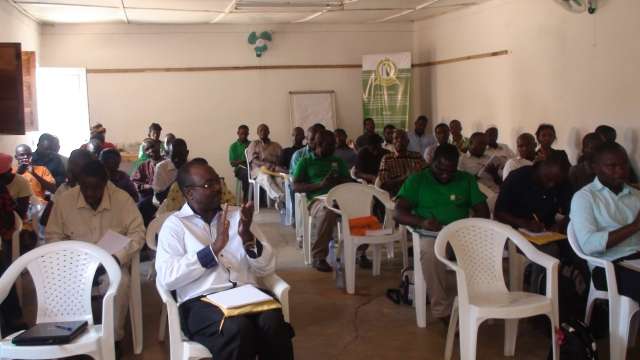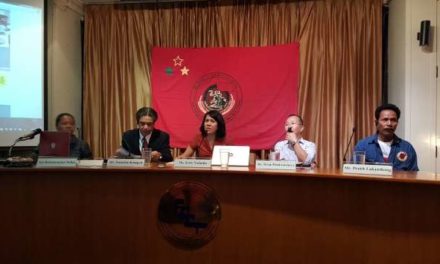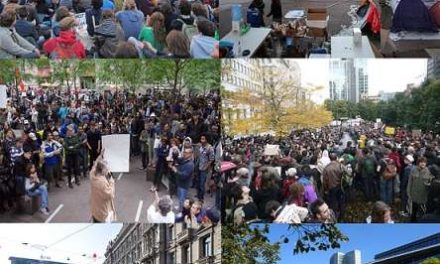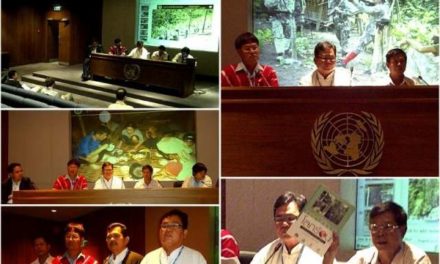We, peasants of the Provincial Nucleus of Peasants in Nampula, the Provincial Nucleus of Peasants in Zambezia, the Provincial Peasants Union of Niassa and the Provincial Union of Peasants of Cabo Delgado, and who are all members of the National Peasants’ Union (UNAC), met on the 11th of October 2012, in the town of Nampula with the aim of discussing and analyzing the ProSavana Programme.
The ProSavana Programme is a triangular project between the Republic of Mozambique, the Federal Republic of Brazil and Japan, for the development of large-scale agriculture in the Nacala Development Corridor, affecting 14 districts in the provinces of Niassa, Nampula and Zambezia, covering an area of approximately 14 million hectares. The project was inspired by an earlier agricultural development project implemented by the Brazilian and Japanese governments in the Brazilian Cerrado (savannah), where large-scale industrial
farming of monocrops (mainly soybeans) is now practiced. This Brazilian project led to a degradation of the environment and the near extinction of indigenous communities living in the affected areas. The Nacala Corridor was chosen because its savannah has similar characteristics to the Brazilian Cerrado, in terms of its climate and agroecology, and because of the ease with which products can be exported.
Ever since hearing about the ProSavana Programme, we have noticed a lack of information and transparency from the main stakeholders involved (the governments of Mozambique, Brazil and Japan), and this is why we held the aforementioned meeting.
We, peasant farmers, condemn the way in which the ProSavana programme was drafted and the way it is intended to be implemented in Mozambique, which has been characterised by reduced transparency and the exclusion of civil society organisations throughout the process, especially peasant organisations.
Following a comprehensive analysis of ProSavana, we peasant farmers have concluded that:
· ProSavana is a result of a top-down policy, which does not take into consideration the demands, dreams and basic concerns of peasants, particularly those within the Nacala Corridor;
· We vehemently condemn any initiative which aims to resettle communities and expropriate the land of peasants to give way to mega farming projects for monocrop production (soybeans, sugar cane, cotton, etc.);
· We condemn the arrival of masses of Brazilian farmers seeking to establish agribusinesses that will transform Mozambican peasant farmers into their employees and rural labourers.
· We are extremely concerned that Prosavana requires millions of hectares of land along the Nacala Corridor, when the local reality shows that such vast areas of land are not available and are currently used by peasants practicing shifting cultivation.
Considering the way in which the ProSavana programme was drafted and the process for implementing it, we peasant farmers warn of the following expected impacts:
· The appearance of landless communities in Mozambique, as a result of land expropriation and resettlement;
· Frequent social upheaval along the Nacala Corridor, and beyond;
· The impoverishment of rural communities and a reduction in the number of alternatives for survival;
· An increase in corruption and conflicts of interest;
· The pollution of water resources as a result of the excessive use of chemical pesticides and fertilisers, as well soil degradation;
· Ecological imbalances due to vast deforestation for agribusiness projects.
If there is to be investment in the Nacala Corridor, or in Mozambique in general, we recommend and demand that these investments be made in developing peasant farming and the peasant economy, as a priority, which we, members of UNAC and members of Via Campesina, know is the only kind of farming capable of creating dignified and lasting livelihoods, of stemming rural exodus, and of producing high-quality foods in sufficient quantities for the entire Mozambican Nation, all of which will lead us towards the realization of Food Sovereignty.
We remain firmly committed to peasant farming and the agroecological production model– the foundations of Food Sovereignty– as alternatives to the development of the agricultural sector in Mozambique which consider all aspects of sustainability and are, in practice, friends of nature.
Peasant farming is the pillar of the local economy and contributes to maintaining and increasing rural employment, as well as allowing towns and villages to survive. It allows collectives to strengthen their own culture and identity. The development policies in this alternative model must be socially and environmentally sustainable and must be adapted to the real challenges and demands of the people.
Peasants are the guardians of life, nature and the planet. As a peasants’ movement in the family sector, UNAC pursues production models based on the foundations of peasant farming (respect and conservation of the soil, use of adapted and appropriate technologies, and a rural extension that is participative and interactive).
At a time when the United Nations, through the FAO, informs us that one out of eight people in the world are hungry, with hunger especially severe in developing countries, as is the case of Mozambique, we demand that the Government of Mozambique give priority to the production of food by the family farming sector for domestic consumption, aiming to develop local potential and involving different segments of society.
UNAC, 25 years of peasant farming struggles for Food Sovereignty
Fighting to give peasant farmers a greater role in building a fairer, more prosperous society, based on solidarity.
Nampula, October 11th 2012








![[IN PHOTOS] In Defense of Human Rights and Dignity Movement (iDEFEND) Mobilization on the fourth State of the Nation Address (SONA) of Ferdinand Marcos, Jr.](https://focusweb.org/wp-content/uploads/2025/07/1-150x150.jpg)

